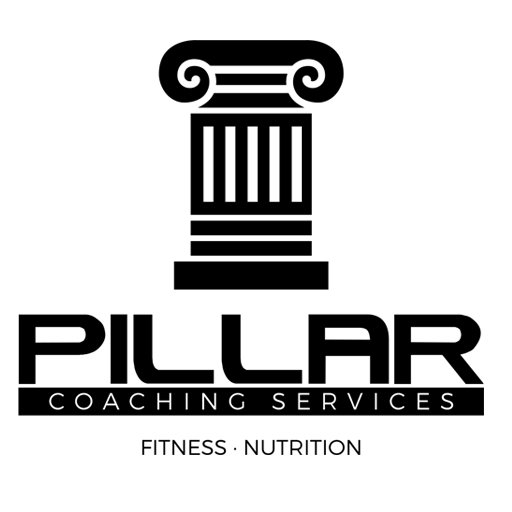Understanding the Relationship Between Caffeine and Sleep
By: Michael Beiter
Hey there, readers! Today, we're going to delve into the fascinating world of caffeine and its impact on our sleep. As a fitness and nutrition coach, I'm always keen to explore topics that affect our well-being, and caffeine is certainly one of them. So, grab your favorite brew, sit back, and let's dive in!
Caffeine: A Worldwide Favorite
It's no secret that caffeine is the world's most popular stimulant, with approximately 80% of the global population indulging in its wakefulness-boosting effects. Many of us rely on our daily dose of coffee, tea, or energy drinks to kickstart our day and shake off that morning grogginess.
Caffeine and Sleep: A Delicate Balance
While caffeine can offer numerous benefits, consuming it too close to bedtime can disrupt our sleep patterns. It can make falling asleep and achieving deep, restorative sleep more challenging. In essence, caffeine can either be our ally, enhancing our alertness and productivity or become a part of a negative cycle that leaves us feeling worse.
The Science Behind Caffeine's Sleep Impact
Caffeine's effect on sleep is primarily due to its interaction with adenosine, a neurotransmitter in our brain responsible for promoting sleepiness. Caffeine and adenosine compete for the same receptors in our brain, like cars vying for parking spaces in a lot.
Think of it this way: when caffeine occupies these receptors, adenosine can't do its job effectively, reducing sleep readiness. To mitigate this, it's crucial to time your caffeine intake wisely, ideally avoiding it in the afternoon or evening to allow your body enough time to clear it from your system.
Caffeine: No Substitute for Sleep
Let's clarify: while a cup of coffee can give you a temporary energy boost, it's not a long-term solution to replace quality sleep. Chronic caffeine consumption doesn't enhance cognitive performance or serve as a substitute for restorative rest.
Acute and targeted caffeine supplementation can provide a brief lift, especially if you're not a regular caffeine consumer. However, relying on caffeine to compensate for sleep deprivation isn't sustainable. As caffeine wears off and adenosine accumulates, you'll experience a crash, making you feel even more fatigued.
Caffeine's Half-Life and Individual Variation
Caffeine doesn't affect everyone the same way. On average, its half-life, or the time it takes for half of it to degrade in your body, is about 6 hours. However, your unique characteristics significantly influence how caffeine affects you.
Factors like age, sex, body composition, hormones, medications, health conditions, smoking, and diet can influence caffeine's impact. Two key factors are habituation (tolerance due to regular consumption) and genetics (how quickly you metabolize caffeine).
Individual responses to caffeine can vary widely. Some people can enjoy an espresso after dinner without sleep disturbances, while others need to be cautious about caffeine intake in the afternoon.
My Experience
I’ve waxed and waned with caffeine consumption over the years. As a teenager, I started using the drug in the potent pre-workouts I saw advertised in my favorite muscle mags. Back then, it was coupled with ephedra and several other ingredients that made the preworkouts of the time damn near legal speed. Since then, several elements have been banned, improving pre-workouts efficacy and toxicity, but I can still see teens and twenty-somethings using these products poorly. I picked up a can of one of the current popular brands to find it contained 400 grams of caffeine per serving.
Just this year, I had a client experience caffeine toxicity because he consumed too many pre-workouts without knowing what was in them. His heart was beating at an all-out sprint pace while lying in bed trying to sleep! He didn’t notice, his Apple watch told him. The cardiologist he met with after his hospital trip commented about the sheer misuse of caffeine, especially in young people.
I recently completed a two-week caffeine vacation, and I’ll tell you, it’s alarming how much we convince ourselves we need the stuff. I’ve worked my way up to 750 grams of caffeine consumption via coffee drinks daily with little agitation to anything but my resting heart rate. I’ve also experienced horrifying anxiety and panic from a cup of coffee with less than 100 grams of caffeine because of how things were going in my life. Now, I enjoy about 250 mg daily from espresso, and I always pair my caffeine consumption with the amino acid theanine in a 2:1 ratio. So, I take 500 mg of theanine to combat some of the stress responses of stimulant consumption. I share this because your relationship with caffeine can and will change over time.
Personalizing Your Caffeine Consumption
As a fitness and nutrition coach, I encourage you to pay attention to how caffeine affects you. Experiment with different doses and timing schedules to balance performance enhancement and enjoying your favorite caffeinated beverages without sacrificing sleep.
In conclusion, caffeine can be a valuable ally or a potential disruptor of our sleep. Understanding its dynamics, individual responses and the importance of good sleep hygiene can help us harness its benefits while ensuring we get the restorative sleep we need.
Stay informed, stay balanced, and remember, your sleep is your recovery rockstar.

